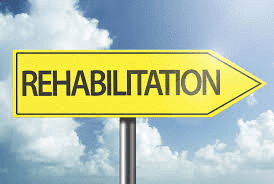We have previously written blog posts about the availability and procedure for “expungement” relief pursuant to Penal Code section 1203.4 after a defendant’s probationary grant has ended or when probation has terminated early per Penal Code section 1203.3.
This blog post discusses the procedure for obtaining expungement relief pursuant to Penal Code section 1203.4a when a defendant has not been granted probation.
Penal Code section 1203.4a permits a qualifying defendant convicted of a misdemeanor and not granted probation and every defendant convicted of an infraction to withdraw a plea of guilty or no contest and enter a plea of not guilty. (Penal Code section 1203.4a(a)). The court will thereupon dismiss the accusatory pleading against the defendant and the person will be released from many of the penalties and disabilities resulting from the offense. (Penal Code section 1203.4a(a)).
With certain exceptions, a petitioner is entitled to relief under Section 1203.4a if all the following are true:
1. One year from the date of pronouncement of judgement has lapsed;
2. Defendant has fully complied with and performed the sentence of the court;
3. Defendant is not serving a sentence for any offense and is not under charge of commission of any crime; and
4. Defendant has lived an honest and upright life and conformed to and obeyed the laws of the land since the pronouncement of judgement. [1]
If the defendant does not satisfy all the requirements listed above, after the lapse of one year from the pronouncement of judgment the court may, in its discretion and in the interests of justice, grant relief under this statute if the defendant has complied with requirements (1) – (3). (Penal Code section 1203.4a(b)).
As with expungements under Penal Code section 1203.4, after an expungement is granted, the conviction is not eliminated from one’s record and will likely appear on a background check or criminal record check but will reflect that the conviction has been “dismissed” instead of “convicted.” Although the criminal history of a conviction is still visible after an expungement is granted, the fact that it has been dismissed pursuant to Penal Code section 1203.4a demonstrates the person’s rehabilitation and is oftentimes necessary for obtaining certain licenses in California.
Expungement relief can have a great beneficial impact on obtaining housing, employment, and other benefits.
DISCLAIMER:
The information in this blog post (“post”) is provided for general informational purposes only, and may not reflect the current law in your jurisdiction. No information contained in this post should be construed as legal advice from Escovar Law, APC or the individual author, nor is it intended to be a substitute for legal counsel on any subject matter. No reader of this post should act or refrain from acting on the basis of any information included in, or accessible through, this Post without seeking the appropriate legal or other professional advice on the particular facts and circumstances at issue from a lawyer licensed in the recipient’s state, country or other appropriate licensing jurisdiction. The information on this website is a communication and is for informational purposes only. The facts of every case are unique and nothing on this page or on this website should be taken as legal advice for any individual case or situation. The information on this website is not intended to create an attorney-client relationship and viewing of this information does not create an attorney-client relationship.
[1] It is important to be aware that not all offenses qualify for relief under this section and relief pursuant to Section 1203.4a will not relieve someone of the requirement to register under Penal Code section 290, if applicable. (Penal Code section 1203.4a(d)(1)-(3)). Further, in any subsequent prosecution of the defendant for any other purpose, “the prior conviction may be pleaded and proved and shall have the same effect as if relief had not been granted pursuant to this section.” (Penal Code section 1203.4a(c)(1)). Relief under this section does not restore firearm rights and does not permit a person prohibited from holding public office as a result of the conviction to hold public office. (Penal Code section 1203.4a(c)(2) and (3)).

